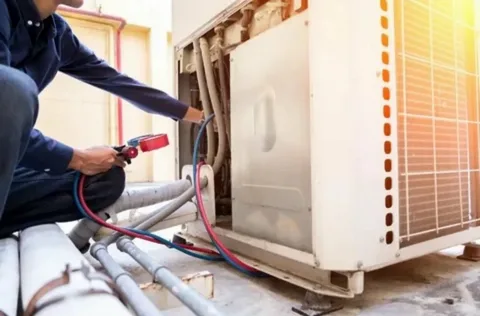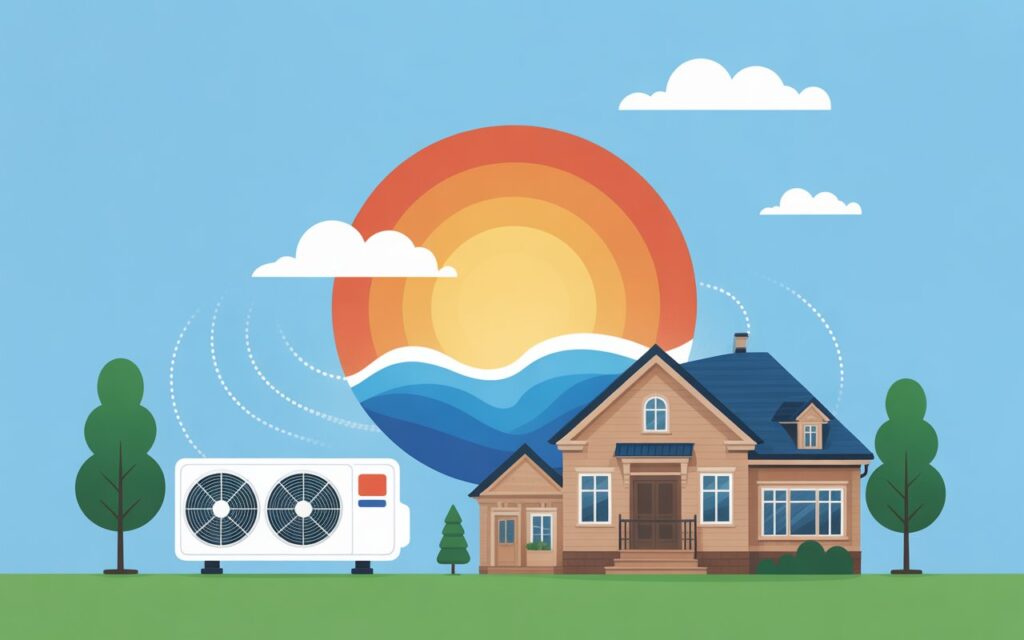Installing an HVAC system is a significant investment for homeowners looking to maintain comfort year-round. Whether you’re replacing an old unit or installing a new one for the first time, it’s important to approach the process with care to ensure you get the most out of your system. At Stealth Energy Controls LLC, we understand how important it is to have a reliable and efficient HVAC system, which is why we offer expert residential HVAC installation services. Here are top HVAC installation tips for a comfortable and efficient home.

1. Choose the Right HVAC System for Your Home
Before scheduling a professional HVAC installation service in Boston, MA, it’s important to determine which type of system is best for your needs. There are various types of HVAC systems available, from central air conditioning units and heat pumps to ductless mini-splits. Consider the size of your home, the climate in your area, and your budget when choosing the system.
Tip: Consult with an HVAC professional who can help you select the right system based on your home’s layout and your specific heating and cooling requirements.
2. Hire Experienced Professionals
While it may be tempting to save money by attempting an HVAC installation as a DIY project, professional installation is crucial for ensuring efficiency, safety, and reliability. Choosing an experienced professional for your HVAC installation ensures that the system is set up correctly, meets all safety codes, and functions at peak efficiency.
3. Proper Sizing of the System
An often overlooked aspect of HVAC installation is system sizing. An HVAC unit that is too small will struggle to cool or heat your home effectively, while a unit that is too large will cycle on and off frequently, leading to higher energy bills and wear and tear. It’s essential to have a professional evaluate your home to determine the right-sized unit.
Tip: Request a load calculation from your installer, which takes into account your home’s insulation, windows, and square footage to choose the right system.
4. Optimize System Placement
The placement of your HVAC unit can affect its performance and energy efficiency. For example, outdoor units should be placed in a well-ventilated area that is not obstructed by debris, plants, or other objects that could block airflow. Similarly, the placement of indoor components should consider air distribution throughout the house.
Tip: Make sure your HVAC system is installed in a location that allows for easy access for future maintenance and repairs.
5. Ensure Proper Ductwork Installation
If your HVAC system uses ductwork, it’s crucial to have it properly installed and sealed to avoid energy loss. Leaky or poorly insulated ducts can significantly reduce the efficiency of your system, costing you more on energy bills and compromising comfort.
Tip: Ask your HVAC professional to check your ductwork for leaks and ensure it’s sealed and insulated properly. This is part of ensuring that the entire system runs efficiently.
Conclusion
An HVAC installation can make or break the comfort of your home, so it’s essential to approach the process with care and professional assistance. By choosing the right system, hiring experienced professionals, ensuring proper sizing and placement, and optimizing your ductwork, you can enjoy a comfortable, energy-efficient home for years to come. At Stealth Energy Controls LLC, we provide expert residential and commercial heating, cooling, repair, and maintenance services, making sure your home remains comfortable year-round.
FAQs
1. How long does an HVAC installation take?
The installation process typically takes 6-8 hours, but it may vary depending on the complexity of the system and any additional work required.
2. How often should I replace my HVAC system?
Most HVAC systems last between 10-15 years. If your system is older and experiencing frequent issues, it may be time for a replacement.
3. What is the most energy-efficient HVAC system?
Ductless mini-split systems and heat pumps are among the most energy-efficient options. They can provide both heating and cooling while using less energy than traditional units.
4. How can I ensure my HVAC system runs efficiently?
Regular maintenance, such as changing filters, cleaning coils, and scheduling professional tune-ups, can keep your system running efficiently.
5. What size HVAC unit do I need for my home?
The right size depends on your home’s square footage, insulation, window placement, and other factors. A professional HVAC installer will perform a load calculation to determine the right size for your needs.









